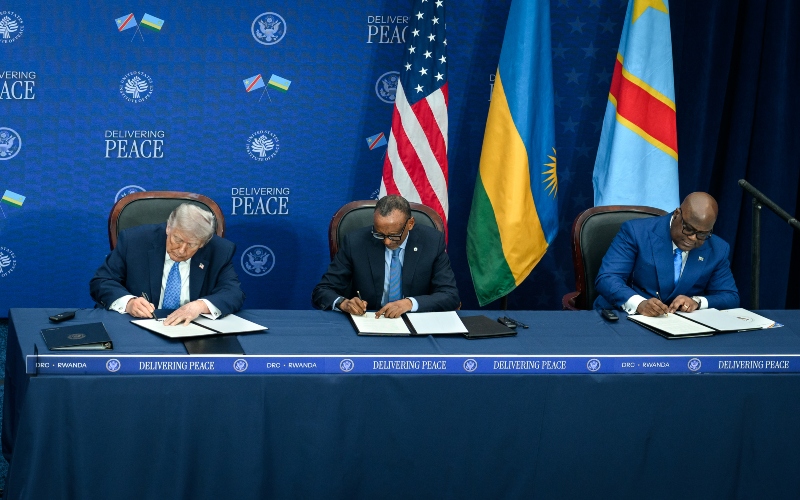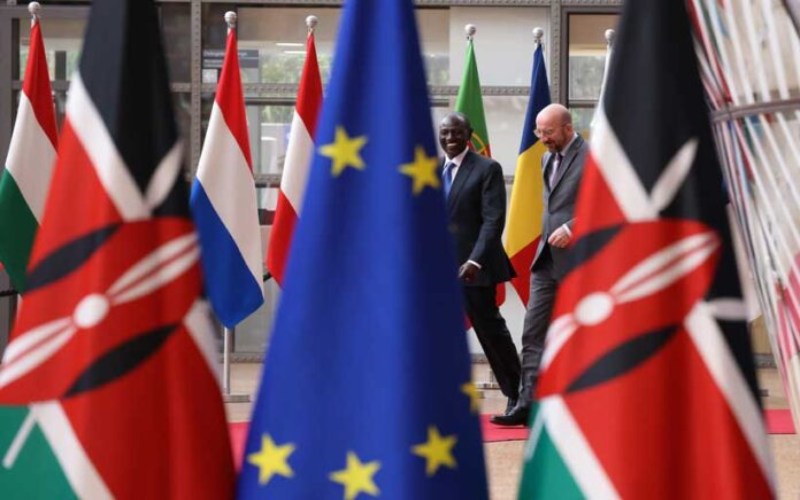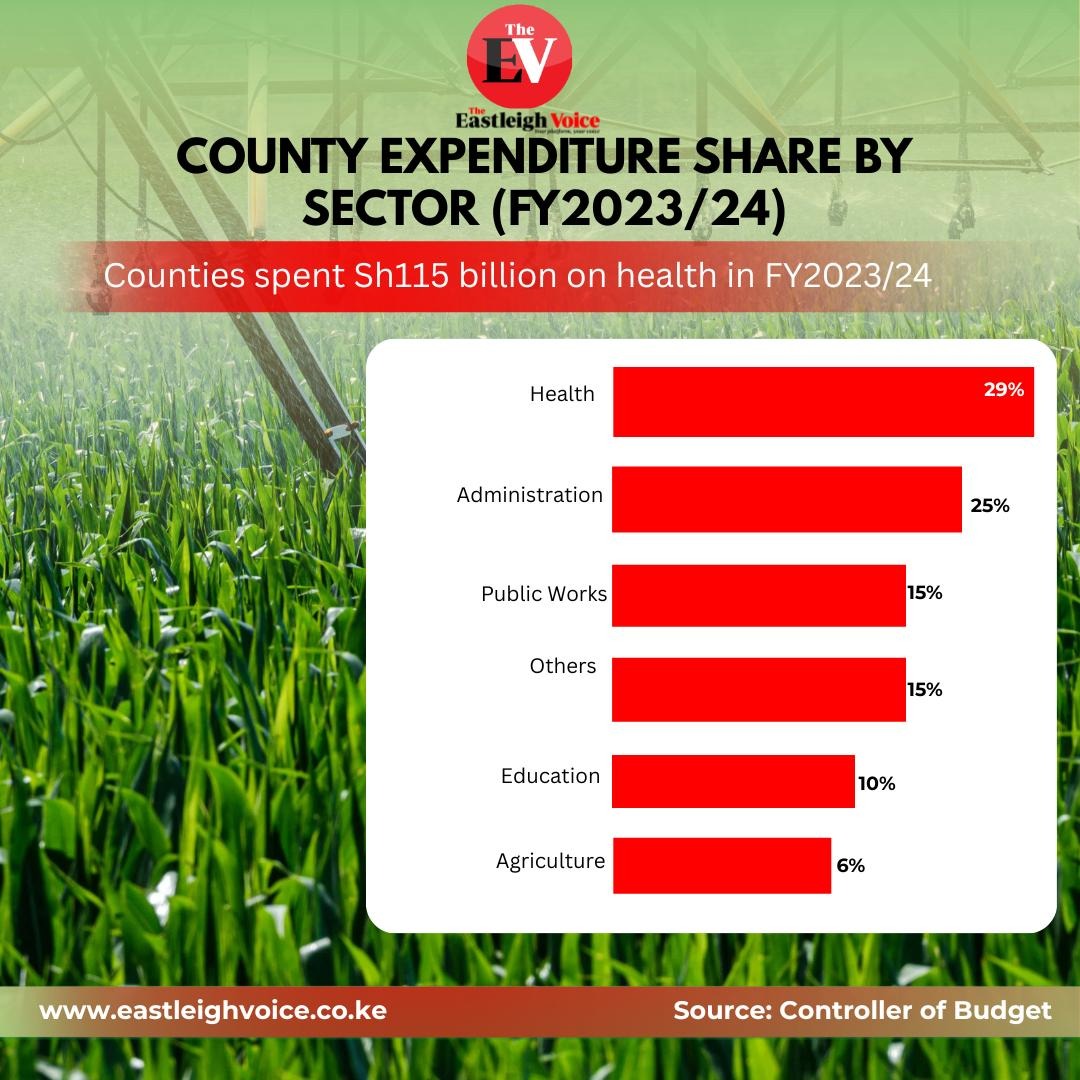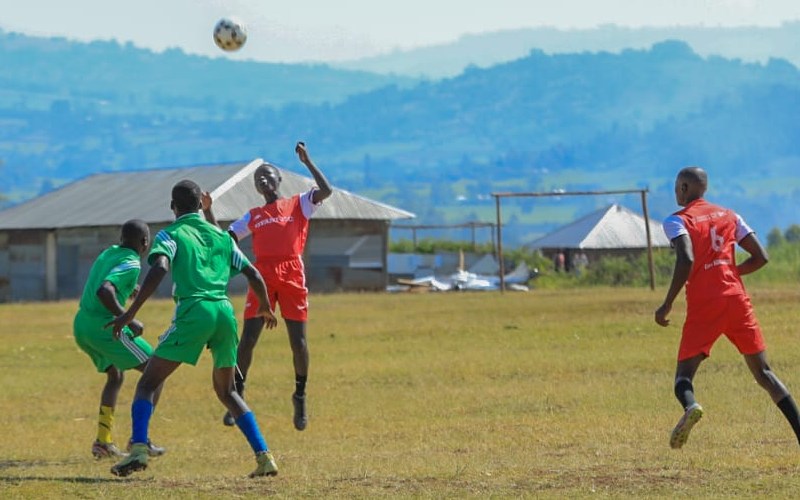From Kenya to Nigeria: Economic crisis fuels youth protests across Africa
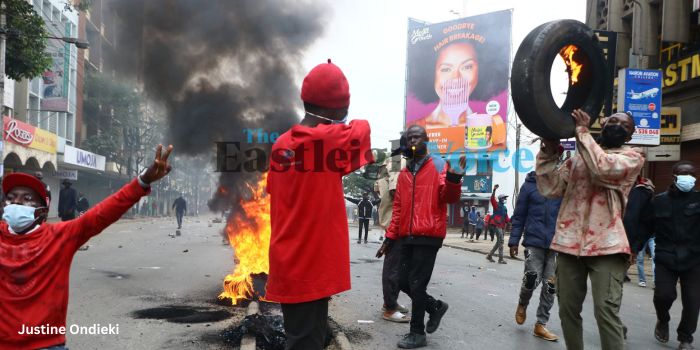
In Nigeria, inflation has spiked above 34 per cent following the removal of a costly fuel subsidy and unsuccessful currency devaluations.
Youths across several African countries have in the past two months mobilised a wave of protests demanding change amidst economic hardships and governance challenges.
In Kenya, young demonstrators led by Gen Z achieved a notable victory in the month of June by halting the Finance Bill 2024, which would have increased taxes on essential items such as bread, vegetable oil, and sanitary towels.
More To Read
- Benin’s hard-won reputation for political stability shaken by failed military coup
- Nigeria confirms military intervention in Benin to stabilise country after failed coup attempt
- Uganda signals possible social media shutdown ahead of 2026 polls
- UN Rights Chief raises alarm over abductions, enforced disappearances in Uganda ahead of elections
- Nigeria provides safe haven for Guinea-Bissau opposition leader as coup crisis deepens
- Nigeria's defense minister resigns amid security crisis
Their activism also forced President William Ruto to dismiss his cabinet and form a new, more inclusive government to address their demands.
This activism is part of a larger trend in neighbouring countries, where young people are also speaking out against corruption, bad governance, and rising living costs.
In Uganda, protesters took to the streets in July to denounce widespread corruption, while in Nigeria, demonstrators expressed their frustrations over perceived ineffective governance and escalating living costs.
The unrest since the COVID-19 pandemic has also reached Ghana, Angola, Malawi, and Senegal, underscoring a widespread youth-driven movement across the continent.
However, while each protest has unique causes, they all share common threads, which are: rapidly growing young populations grappling with high inflation, a shortage of quality jobs, and a political class that lacks trust and credibility.
According to the United Nations, Africa is the youngest continent, with 70 per cent of its population under the age of 30, and it is projected to nearly double to 2.2 billion people within 30 years.
According to data from the United Nations Educational, Scientific, and Cultural Organisation (UNESCO), Generation Z and millennial Africans are more educated than previous generations.
The data, covering 2011 to 2021, shows that the percentage of students pursuing higher education decreased in only three out of 22 countries.
Despite this progress, the World Bank reports that over 10 million individuals enter the workforce annually in sub-Saharan Africa, competing for just 3 million available jobs. Additionally, many of those who don’t get formal work hustle in the badly paid, risky informal sector.
Anthony Kamande, an inequality researcher at Oxfam in Nairobi, told The Guardian, “Here in Kenya, if you look at these protests, actually, they were led by educated people. But most of them were jobless.”
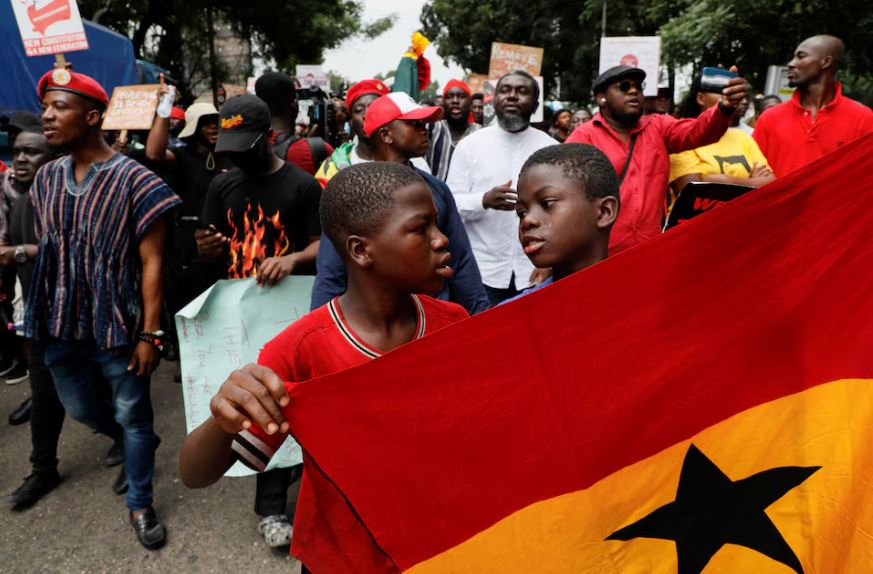 Ghanaians gather for the third day of anti-government protests amid police arrests and obstruction in Accra, Ghana, September 23, 2023.
Ghanaians gather for the third day of anti-government protests amid police arrests and obstruction in Accra, Ghana, September 23, 2023.Ghanaians gather for the third day of anti-government protests amid police arrests and obstruction in Accra, Ghana, September 23, 2023.
Unemployment was ranked as the most important problem by 18- to 35-year-olds surveyed by the pan-African survey organisation Afrobarometer.
Recent global events, such as the COVID-19 pandemic, Russia's invasion of Ukraine, and rising global borrowing costs, have further strained the economic landscape and contributed to soaring living expenses.
The International Monetary Fund has noted that inflation remains in double digits in about a third of sub-Saharan African countries. In Nigeria, inflation has spiked above 34 per cent following the removal of a costly fuel subsidy and unsuccessful currency devaluations.
Chief Economist for the Middle East and Africa at Standard Chartered Bank, Razia Khan, explained that before the 2023 presidential election, all three candidates who were vying agreed that the country needed to open up its foreign exchange market and remove the fuel subsidy because it was too costly.
She added that the protests began only a year after the removal of the subsidy. This is because the cost of living hasn’t improved much, and inflation is still very high.
“Prior to the presidential election in 2023, each of the three candidates said FX [foreign exchange] liberalisation needs to happen and the fuel subsidy is unaffordable and needs to go. It’s a year after the initial fuel subsidy removal that we’re seeing protests, and that’s really driven by the fact that the cost of living crisis has not eased meaningfully and that inflation continues to be at runaway levels,” Khan told The Guardian.
Debt servicing has also heavily impacted public spending across the continent. Kenya, for example, dedicates a third of its government revenues to debt repayments, while Ghana allocates half of its income to debt servicing before defaulting at the end of 2022.
Ethiopia is restructuring its debt and managing inflation, having recently allowed its birr currency to weaken by 30 per cent against the US dollar.
The IMF also approved a $3.4 billion loan for Ethiopia, which is also set to receive $16.6 billion from the World Bank over the next three years.
CEO of the Dakar-based consultancy Africatalyst, Daouda Sembene, emphasised the need for careful management of economic policies.
“Attention also needs to be put … to make sure that those who are likely to suffer from it are protected,” he said.
While reflecting on the widespread frustration and limited opportunities facing many young Africans today, Charlie Robertson, head of macro-strategy at FIM Partners, said, “Many of the pressures fuelling recent protests are not going away. Political protest is all that educated youth have.”
 Uganda security forces patrol near the National Unity Platform (NUP) political party offices led by Robert Kyagulanyi, popularly known as Bobi Wine, ahead of anti-government protests at the Makerere Kavule, in the suburb of Kampala, Uganda July 22, 2024. (Photo: REUTERS/Abubaker Lubowa)
Uganda security forces patrol near the National Unity Platform (NUP) political party offices led by Robert Kyagulanyi, popularly known as Bobi Wine, ahead of anti-government protests at the Makerere Kavule, in the suburb of Kampala, Uganda July 22, 2024. (Photo: REUTERS/Abubaker Lubowa)
Top Stories Today

